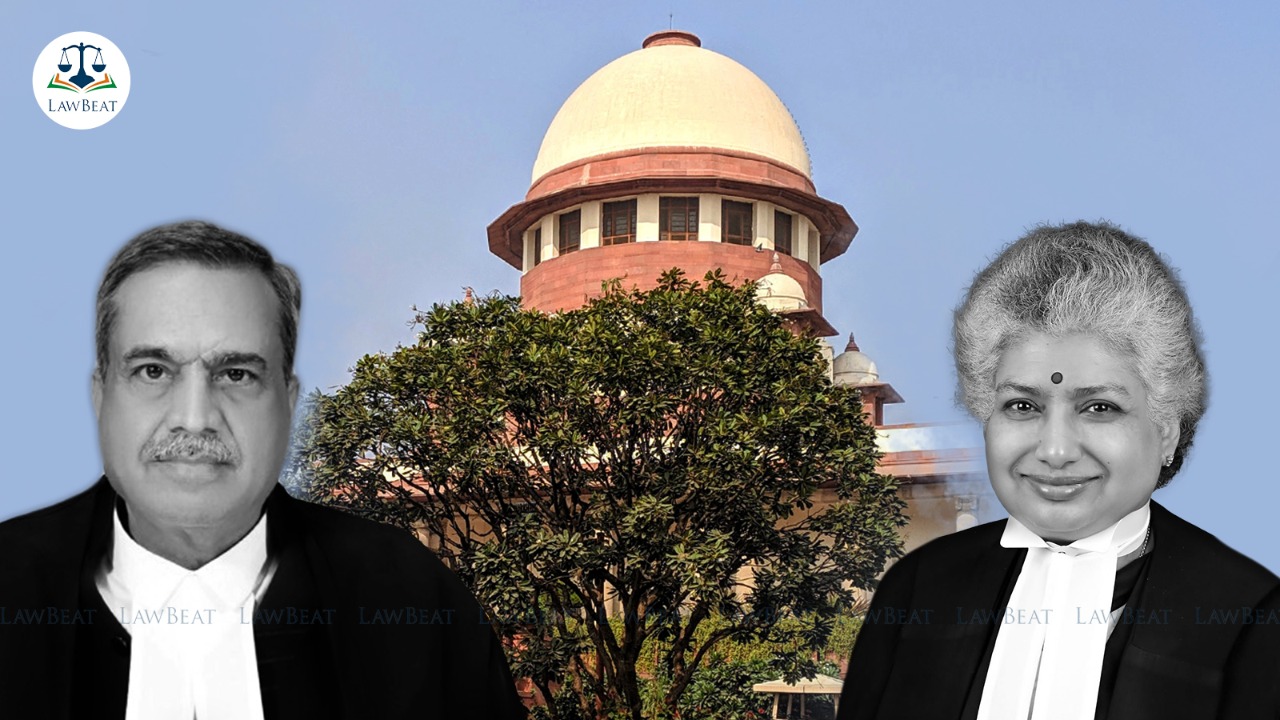Supreme Court pulls up Gujarat for not challenging bail to man accused of brutally murdering scrap collector

Noting that it is the duty of the Director of Prosecution and the State to ensure that the guilty are booked and punished, the Supreme Court has pulled up the state of Gujarat for not filing an appeal against an order granting bail to persons accused of brutally murdering a man while he was "just collecting scrap outside a factory."
"The State ought to have been very serious even to maintain the rule of law in a serious matter like this where a person was brutally murdered/killed while he was just collecting scrap outside the factory with his wife and aunt....", remarked a bench of Justices MR Shah and BV Nagarathna.
The Court further refused to accept submissions made by Advocate Aastha Mehta, appearing on behalf of the state who submitted that it takes time to take a decision whether to prefer an appeal or not.
An appeal was filed by Jayaben, wife of the deceased Mukeshbhai, challenging judgments and orders passed by the Gujarat High Court releasing the respective accused.
All the five accused persons came to be charge-sheeted for offences under Sections 302, 342, 354, 323, 143, 147, 148, 149 of the Indian Penal Code 1860, Section 3(1)(r)(s), 3(2)(5) of the Scheduled Castes and the Scheduled Tribes (Prevention of Atrocities) Act, 1989 and Section 135 of the Gujarat Police Act, 1951 having committed the murder of Mukeshbhai.
In the instant case, since the entire incident wherein the deceased Mukeshbhai was brutally beaten by the accused had been captured/recorded in the CCTV footages and the mobile phone, the punchnama of the place of the incident had been prepared, statements of the witnesses were recorded; test identification of the accused had been carried out; CCTV footages and DVR from the place of incident, pipe and the belt used in commission of the crime had been recovered, the High Court without considering the seriousness of the offences alleged was held to have released the accused on bail in a "most perfunctory and casual manner."
The bench noted that by not filing the appeals against the impugned judgments and orders releasing the accused on bail in such a serious matter, the State had failed to protect the rights of the victim.
“We are of the opinion that this was a fiit case where the State ought to have preferred the appeals challenging the orders passed by the High Court releasing the accused on bail. In criminal matters the party who is treated as the aggrieved party is the State which is the custodian of the social interest of the community at large and so it is for the State to take all the steps necessary for bringing the person who has acted against the social interest of the community to book.”
Emphasizing on the role of the Director of Prosecution, the Court said that even the Director of Prosecution had failed to perform his duties. It further noted that the post of Director of Prosecution is a very important post in so far as the administration of justice in criminal matters is concerned.
“It is the duty of the Director of Prosecution to take prompt decision. Given that crimes are treated as a wrong against the society as a whole, the role of the Director of Prosecution in the administration of justice is crucial. He is appointed by the State Government in exercise of powers under Section 25A of the Code of Criminal Procedure. That his is a crucial role is evident from conditions such as in Section 25A (2) of the Code, which stipulates a minimum legal experience of not less than ten years for a person to be eligible to be Directorate of Prosecution and that such an appointment shall be made with the concurrence of the Chief Justice of the High Court”, noted the Court.
Hoping that prompt decision in such matters are taken and challenge to the order passed by the trial court and/or the High Court are made as where it is found that the accused are released on bail in serious offences, the bench directed the Registry to send a copy of the order to the Principal Chief Secretary and Secretary, Home Department and Legal Department, State of Gujarat to take further corrective steps.
While allowing the appeal, the bench also refused to accept the submission of the accused that more than two and a half years had passed since they were released on bail and there were no allegations of misuse of liberty and therefore, the bail may not be cancelled.
The court observed that cancellation of bail and quashing and setting aside the wrong order passed by the High Court releasing the accused on bail stood on different footings.
Thus, while directing the accused to surrender before the concerned jail authority within a period of one week, failing which the nonbailable warrants be issued against them, the Court said,
“There are different considerations while considering the application for cancellation of bail for breach of conditions etc., and while considering an order passed by the Court releasing the accused on bail. Once, it is found that the order passed by the High Court releasing the accused on bail is unsustainable, necessary consequences shall have to follow and the bail has to be cancelled.”
Cause Title: Jayaben v Tejas Kanubhai Zala & Anr.
